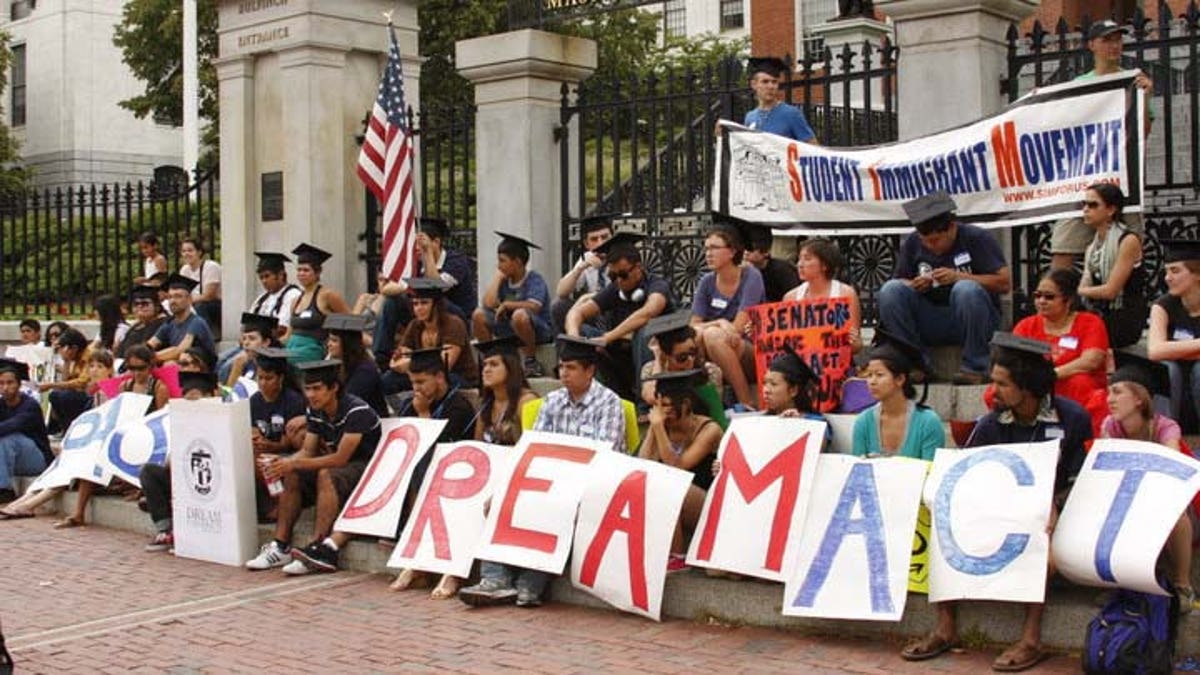
The battle over the DREAM Act – the Development, Relief and Education for Alien Minors Act of 2011, which would offer undocumented immigrants a route to legal status – is flaring up again after President Barack Obama's May 10 speech on immigration reform in El Paso, Texas, and the subsequent move by Senate Democrats to reintroduce the measure.
But the political front lines of the fight are in the state legislatures, and nowhere is the outcome of the battle more in doubt than in New England, home of six of the 26 U.S. Senators who voted to reintroduce the bill.
In Massachusetts, policymakers are voting Thursday night on an amendment in the State Senate that would make it illegal for undocumented students to pay for in-state tuition. This comes on the heels of a similar bill granting in-state tuition to undocumented immigrant students in neighboring Connecticut.
"It would be a blow to passage of the DREAM Act at the federal level and it would be a contradiction that one state like Connecticut passed it and a Democratic state like Massachusetts didn’t," said Franklin Soults, communications director for the Massachusetts Immigrant and Refugee Advocacy Coalition, or MIRA.
Those who support the measure say that undocumented youth should not be penalized for being brought here at an early age by their parents, who then overstayed their visas or weren’t able to legalize their status.
One of those undocumented immigrant youth is Denis Lemos, for whom passage of the DREAM Act would be life-altering.
“That would be the best thing that could happen to my life right now,” said Lemos, 25, who emigrated with his family from Brazil when he was 14 years old.
Lemos, who says he feels more American than Brazilian, attended high school in Framingham, Mass. While his family was trying to legalize their status, he attended MassBay Community College, and was then accepted to the University of Massachusetts Lowell, where he was a double major in computer science and electrical engineering.
But when his family’s green card application was denied in 2009, Lemos was forced to drop out of college.
He now faces deportation.
“There are a lot of students who are not criminals,” Lemos said. “We want to be here to do something better with our lives.”
At the national level, the DREAM Act would require undocumented immigrant students to meet a number of requirements, including having been brought to the United States before the age of 16, having lived for at least five years in the country, and having passed a comprehensive criminal background check. Further, the immigrant youth would have to demonstrate English proficiency, have a high school diploma or GED, and complete two years of higher education or military service in good standing.
In Massachusetts, the Student Immigrant Movement, or SIM, has advocated on behalf of DREAM Act students as part of a national strategy to halt deportations and pressure policymakers to pass the measure.
“The main goal for our campaign is to highlight these cases and try to get them out of deportation and put Obama in a tough spot,” said Deivid Ribeiro, communications associate for SIM.
The DREAM Act, indeed, is an important first step, but Ribeiro said Democrats have a lot of work to do.
“It’s going to take changing the hearts and minds of the Democrats to push them hard,” he said. “Our main targets aren’t Scott Brown and John McCain, but the other Democrats who can step up and change the argument.”
Opponents of the DREAM Act argue that it is a form of amnesty that encourages more people to enter the country illegally and overstay their time-limited visas – essentially, that it rewards lawbreakers.
However, most violations of immigration laws constitute civil infractions.
The Massachusetts Citizens for Immigration Reform, a group that calls for reducing legal immigration, opposes the measure in the state.
“How many times do we need to go through amnesty?” said Steve Kropper, the group’s co-chair. “Many of these kids would not be eligible to work in Massachusetts if their immigration status is illegal.”
Kropper added that there might be other political interests at play that are forcing Obama to reignite the issue.
“I think that Obama on this one realizes that it’s not in the country’s interest," Kropper said. "But he’ll try to push it forward, and it’ll die.”
But the measure still has steadfast support from some of its original backers.
“The DREAM Act is a commonsense reform that shouldn’t be controversial,” said Sen. John Kerry in an e-mailed statement. "I’ve supported the DREAM Act for a decade because it’s the right thing to do, and I’ll continue to push until it becomes law.”
Until that time, students like Lemos must wait and hope that they will be able to stay in the country they consider home.
“I feel American,” Lemos said. “Going back to Brazil would be like going to a foreign country. I've been here for 11 years, and I haven’t been back.”
Tanya Pérez-Brennan is a freelance journalist based in Boston. She can be reached at tpb775@yahoo.com.
Follow us on twitter.com/foxnewslatino
Like us at facebook.com/foxnewslatino




